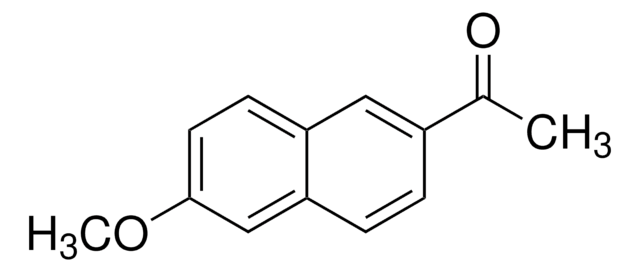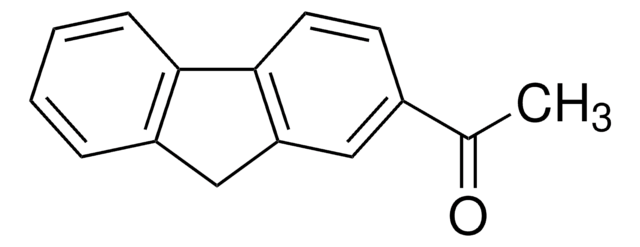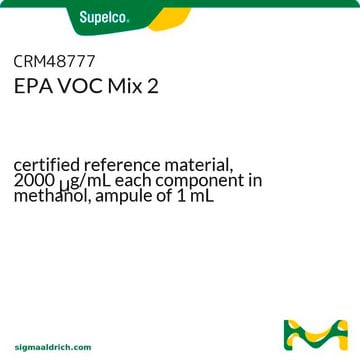MABN2655
Anti-Kynurenine Antibody, clone 11F9
Synonym(e):
(2S)-2-Amino-4-(2-aminophenyl)-4-oxo-butanoic acid
About This Item
Empfohlene Produkte
Biologische Quelle
mouse
Qualitätsniveau
Antikörperform
purified antibody
Antikörper-Produkttyp
primary antibodies
Klon
11F9, monoclonal
Mol-Gew.
calculated mol wt 208.22 kDa
observed mol wt ~65 kDa
Aufgereinigt durch
using protein G
Speziesreaktivität
human
Speziesreaktivität (Voraussage durch Homologie)
all
Verpackung
antibody small pack of 100 μg
Methode(n)
western blot: suitable
Isotyp
IgG1κ
Epitopsequenz
Unknown
Protein-ID-Hinterlegungsnummer
UniProt-Hinterlegungsnummer
Lagertemp.
2-8°C
Allgemeine Beschreibung
Spezifität
Immunogen
Anwendung
Evaluated by Western Blotting with Kynurenine modified Bovine serum albumin (BSA).
Western Blotting Analysis (WB): A 1:20,000 dilution of this antibody detected Kynurenine modified BSA, but not the unmodified BSA.
Tested applications
ELISA Analysis: A representative lot detected Kynurenine in ELISA applications (Staniszewska, M., et al. (2007). J Immunol Methods. 324(1-2); 63-73).
Immunocytochemistry Analysis: A representative lot detected Kynurenine in Immunocytochemistry applications (Staniszewska, M., et al. (2007). J Immunol Methods. 324(1-2); 63-73).
Western Blotting Analysis: A representative lot detected Kynurenine in Western Blotting applications (Staniszewska, M., et al. (2007). J Immunol Methods. 324(1-2); 63-73).
Immunohistochemistry Applications: A representative lot detected Kynurenine in Immunohistochemistry applications (Staniszewska, M., et al. (2007). J Immunol Methods. 324(1-2); 63-73).
Note: Actual optimal working dilutions must be determined by end user as specimens, and experimental conditions may vary with the end user.
Physikalische Form
Lagerung und Haltbarkeit
Sonstige Hinweise
Haftungsausschluss
Sie haben nicht das passende Produkt gefunden?
Probieren Sie unser Produkt-Auswahlhilfe. aus.
Lagerklassenschlüssel
13 - Non Combustible Solids
WGK
WGK 1
Flammpunkt (°F)
Not applicable
Flammpunkt (°C)
Not applicable
Analysenzertifikate (COA)
Suchen Sie nach Analysenzertifikate (COA), indem Sie die Lot-/Chargennummer des Produkts eingeben. Lot- und Chargennummern sind auf dem Produktetikett hinter den Wörtern ‘Lot’ oder ‘Batch’ (Lot oder Charge) zu finden.
Besitzen Sie dieses Produkt bereits?
In der Dokumentenbibliothek finden Sie die Dokumentation zu den Produkten, die Sie kürzlich erworben haben.
Unser Team von Wissenschaftlern verfügt über Erfahrung in allen Forschungsbereichen einschließlich Life Science, Materialwissenschaften, chemischer Synthese, Chromatographie, Analytik und vielen mehr..
Setzen Sie sich mit dem technischen Dienst in Verbindung.








